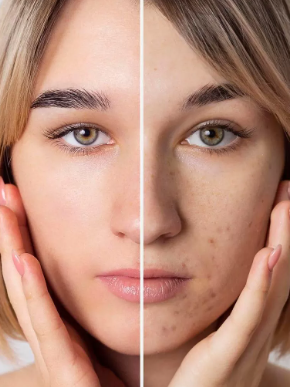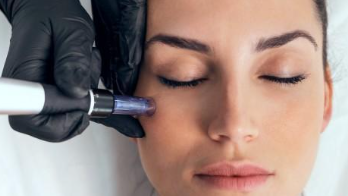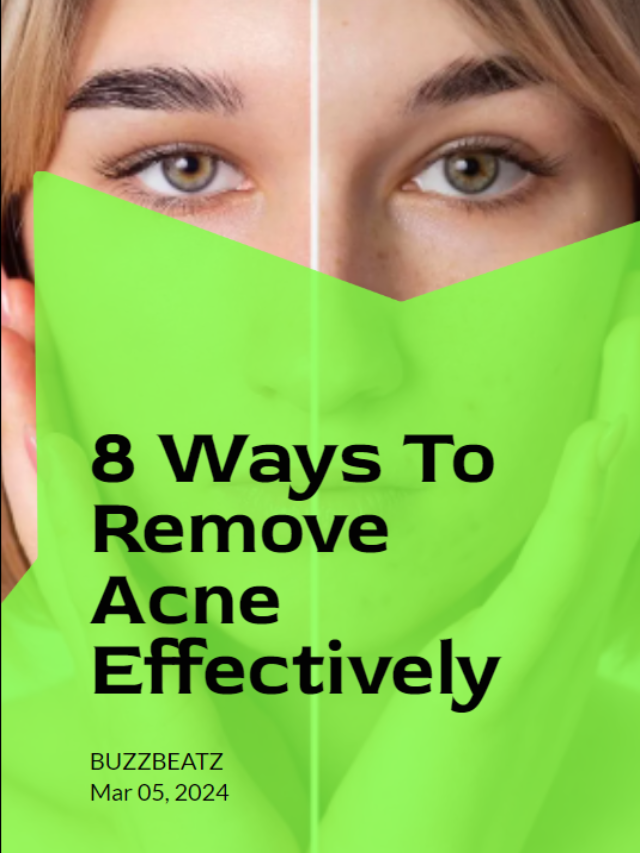Removing acne effectively involves a combination of proper skincare, lifestyle changes, and possibly medical treatment depending on the severity of the acne. Here are some effective ways to tackle acne:
- Maintain a Consistent Skincare Routine:

- Cleanse: Use a gentle cleanser twice daily to remove excess oil, dirt, and impurities from the skin.
- Exfoliate: Incorporate exfoliation into your routine to remove dead skin cells and unclog pores. However, be gentle to avoid irritating the skin.
- Moisturize: Use a non-comedogenic moisturizer to keep the skin hydrated without clogging pores.
- Spot Treatment: Apply over-the-counter spot treatments containing ingredients like benzoyl peroxide, salicylic acid, or sulfur to target individual acne lesions.
- Avoid Touching Your Face: Touching your face can transfer bacteria and oils from your hands to your skin, exacerbating acne. Avoid picking or popping pimples, as this can lead to scarring and further inflammation.
- Practice Good Hygiene:
- Wash Your Pillowcases: Regularly wash your pillowcases and sheets to prevent bacteria buildup.
- Clean Makeup Brushes: Cleanse your makeup brushes and applicators regularly to prevent bacteria and oil buildup.
- Dietary Adjustments:

- Limit Dairy and High-Glycemic Foods: Some studies suggest that dairy products and foods high in refined sugars and carbohydrates may exacerbate acne in some individuals. Consider reducing your intake of these foods.
- Stay Hydrated: Drink plenty of water to keep your skin hydrated and promote overall skin health.
- Manage Stress: High stress levels can trigger hormonal changes that contribute to acne flare-ups. Practice stress-reduction techniques such as meditation, yoga, deep breathing exercises, or engaging in hobbies you enjoy.
- Consider Professional Treatments:
- Topical Prescription Medications: If over-the-counter treatments are not effective, a dermatologist may prescribe topical medications such as retinoids, antibiotics, or combination therapies.
- Oral Medications: In cases of moderate to severe acne, oral medications like oral antibiotics, hormonal therapies (for women), or isotretinoin may be prescribed.
- Professional Procedures: Dermatological procedures such as chemical peels, microdermabrasion, laser therapy, or corticosteroid injections can help improve acne and reduce scarring.

- Sun Protection: Use a broad-spectrum sunscreen with an SPF of 30 or higher to protect your skin from harmful UV rays, which can exacerbate acne and cause post-inflammatory hyperpigmentation.
- Consult a Dermatologist: If your acne is severe, persistent, or causing emotional distress, consult a dermatologist for personalized treatment recommendations and guidance.
Remember that treating acne is a gradual process, and results may not be immediate. Consistency, patience, and a multifaceted approach are key to effectively managing and reducing acne over time.

Very informative
Thank you 🙂